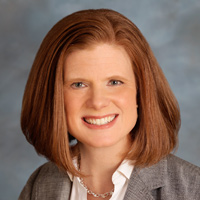What Matters Most to Children of Wealth
You might be surprised. Living it up isn't high on their list. Instead, most seem to be just as vested in protecting their family's legacy as their parents are. Here's how to help them do just that.

Profit and prosper with the best of Kiplinger's advice on investing, taxes, retirement, personal finance and much more. Delivered daily. Enter your email in the box and click Sign Me Up.
You are now subscribed
Your newsletter sign-up was successful
Want to add more newsletters?

Delivered daily
Kiplinger Today
Profit and prosper with the best of Kiplinger's advice on investing, taxes, retirement, personal finance and much more delivered daily. Smart money moves start here.

Sent five days a week
Kiplinger A Step Ahead
Get practical help to make better financial decisions in your everyday life, from spending to savings on top deals.

Delivered daily
Kiplinger Closing Bell
Get today's biggest financial and investing headlines delivered to your inbox every day the U.S. stock market is open.

Sent twice a week
Kiplinger Adviser Intel
Financial pros across the country share best practices and fresh tactics to preserve and grow your wealth.

Delivered weekly
Kiplinger Tax Tips
Trim your federal and state tax bills with practical tax-planning and tax-cutting strategies.

Sent twice a week
Kiplinger Retirement Tips
Your twice-a-week guide to planning and enjoying a financially secure and richly rewarding retirement

Sent bimonthly.
Kiplinger Adviser Angle
Insights for advisers, wealth managers and other financial professionals.

Sent twice a week
Kiplinger Investing Weekly
Your twice-a-week roundup of promising stocks, funds, companies and industries you should consider, ones you should avoid, and why.

Sent weekly for six weeks
Kiplinger Invest for Retirement
Your step-by-step six-part series on how to invest for retirement, from devising a successful strategy to exactly which investments to choose.
There’s some good news for high-net-worth parents of Gen Z (ages 16 to 21) and young Millennial (ages 22 to 25) children. According to a recent Wells Fargo study of children in families with an estimated net worth of at least $1 million, these children say the most important thing they will inherit from their parents isn’t their wealth but their values.
The news gets event better. These same children say they want to carry on their families’ legacies too, which indicates that the children are seeing their families’ wealth as more than just something that can just make life easier for them.
Hearing Directly from the Children
This study was unique because it was one of the first where we are hearing directly from the children and not from the parents or grandparents about what they think the children’s priorities or perceptions are. When the children had the opportunity to share their perspectives, they were quite brave about what they revealed. They had some encouraging things to say and made it clear they could use some help, too.
From just $107.88 $24.99 for Kiplinger Personal Finance
Become a smarter, better informed investor. Subscribe from just $107.88 $24.99, plus get up to 4 Special Issues

Sign up for Kiplinger’s Free Newsletters
Profit and prosper with the best of expert advice on investing, taxes, retirement, personal finance and more - straight to your e-mail.
Profit and prosper with the best of expert advice - straight to your e-mail.
- More than four out of five (84%) say they want to sustain and build on their family's legacy.
- The survey found that four in 10 children want to have more say in their family's philanthropic strategies.
- The next generation is confident and wants to take on the responsibility of stewardship regarding the family’s wealth and legacy, yet realize they need help with gaining the financial acumen and preparation to do so.
- Few children indicate their families meet to discuss finances, yet more than half think it would be a good idea.
This data can be distilled in to three main themes, which any family, not just wealthy families, can address with their children about money: communication, values and preparation.
Communication
Most everyone has good intentions when it comes to their families. However, some need help with interacting on topics related to wealth because those discussions can be scary. Many of us are taught that to talk about money is taboo, or parents are afraid that sharing facts and figures with their children might make their children lazy or entitled. It is vital, however, to talk with your children about money and your family’s money culture, and not just once but regularly.
Family meetings, mission statements and understanding children's desires and concerns can be helpful in making those conversations easier, and you might be surprised at how well the children respond to being brought into the inner circle. One way to start that conversation could be to establish some basic ground rules for the meeting — like no sarcasm, no interrupting, all ideas welcome — to make the space feel safe to start these conversations.
Philanthropy
Philanthropy can also be a tool to help navigate discussions about wealth, values and priorities. The survey shows that two out of three families now give together as a family. But children want to take an even more active role in shaping how much their family gives and to what causes. Having discussions about what might interest the children, what challenges they see in the world and ideas for how to solve them can be a great start for discussions about philanthropy.
You can give your children a set amount of money to donate to a charity they choose, but before they make the donation, ask them to answer some basic questions about how they want their donation to make an impact, why they are choosing that charity, etc., and ask them to share that with you at a family meeting.
Financial Literacy
Even though a majority of respondents (65%) say they are confident they can manage family wealth, the children of millionaires give themselves mediocre grades (B- average) on their overall financial literacy. This reveals an opportunity to help the children learn more about basic financial literacy, protecting themselves and stewarding the family assets.
Business leaders spend a lot of time and energy on building a pipeline of up-and-coming leaders, training, educating and mentoring them to eventually lead the business. Enterprising families can apply these same principles to prepare the next generation to step in to the role of wealth stewards too.
It is vital to establish solid and open communication, create a shared purpose and educate our children so that they are prepared for stewardship. When families work together, communicate clearly and maintain a shared purpose, the financial and emotional wealth created is much more stable and enduring.
Survey Details — On behalf of Wells Fargo Private Bank, Versta Research conducted a national survey of 1,000 Gen Z (ages 16-21) and young Millennials (ages 22-26) whose parents have an estimated net worth of at least $1 million, and the questions related to their thoughts on money and values, conversations with parents, expectations around wealth, future plans, financial acumen, etc.
Wells Fargo Private Bank provide products and services through Wells Fargo Bank, N.A. and its various affiliates and subsidiaries. Wells Fargo Bank, N.A. is the banking affiliate of Wells Fargo & Company.
Profit and prosper with the best of Kiplinger's advice on investing, taxes, retirement, personal finance and much more. Delivered daily. Enter your email in the box and click Sign Me Up.

Katherine Dean is the Head of Family Dynamics for Wells Fargo Private Bank. Dean leads the ongoing evolution of the Family Dynamics program curriculum as well as the management of the Family Dynamics team that is distributed across the country. The Family Dynamics team helps families sustain their wealth across generations, by facilitating decision-making about the complex issues that arise as a result of substantial wealth.
-
 Ask the Tax Editor: Federal Income Tax Deductions
Ask the Tax Editor: Federal Income Tax DeductionsAsk the Editor In this week's Ask the Editor Q&A, Joy Taylor answers questions on federal income tax deductions
-
 States With No-Fault Car Insurance Laws (and How No-Fault Car Insurance Works)
States With No-Fault Car Insurance Laws (and How No-Fault Car Insurance Works)A breakdown of the confusing rules around no-fault car insurance in every state where it exists.
-
 7 Frugal Habits to Keep Even When You're Rich
7 Frugal Habits to Keep Even When You're RichSome frugal habits are worth it, no matter what tax bracket you're in.
-
 For the 2% Club, the Guardrails Approach and the 4% Rule Do Not Work: Here's What Works Instead
For the 2% Club, the Guardrails Approach and the 4% Rule Do Not Work: Here's What Works InsteadFor retirees with a pension, traditional withdrawal rules could be too restrictive. You need a tailored income plan that is much more flexible and realistic.
-
 Retiring Next Year? Now Is the Time to Start Designing What Your Retirement Will Look Like
Retiring Next Year? Now Is the Time to Start Designing What Your Retirement Will Look LikeThis is when you should be shifting your focus from growing your portfolio to designing an income and tax strategy that aligns your resources with your purpose.
-
 I'm a Financial Planner: This Layered Approach for Your Retirement Money Can Help Lower Your Stress
I'm a Financial Planner: This Layered Approach for Your Retirement Money Can Help Lower Your StressTo be confident about retirement, consider building a safety net by dividing assets into distinct layers and establishing a regular review process. Here's how.
-
 The 4 Estate Planning Documents Every High-Net-Worth Family Needs (Not Just a Will)
The 4 Estate Planning Documents Every High-Net-Worth Family Needs (Not Just a Will)The key to successful estate planning for HNW families isn't just drafting these four documents, but ensuring they're current and immediately accessible.
-
 Love and Legacy: What Couples Rarely Talk About (But Should)
Love and Legacy: What Couples Rarely Talk About (But Should)Couples who talk openly about finances, including estate planning, are more likely to head into retirement joyfully. How can you get the conversation going?
-
 How to Get the Fair Value for Your Shares When You Are in the Minority Vote on a Sale of Substantially All Corporate Assets
How to Get the Fair Value for Your Shares When You Are in the Minority Vote on a Sale of Substantially All Corporate AssetsWhen a sale of substantially all corporate assets is approved by majority vote, shareholders on the losing side of the vote should understand their rights.
-
 How to Add a Pet Trust to Your Estate Plan: Don't Leave Your Best Friend to Chance
How to Add a Pet Trust to Your Estate Plan: Don't Leave Your Best Friend to ChanceAdding a pet trust to your estate plan can ensure your pets are properly looked after when you're no longer able to care for them. This is how to go about it.
-
 Want to Avoid Leaving Chaos in Your Wake? Don't Leave Behind an Outdated Estate Plan
Want to Avoid Leaving Chaos in Your Wake? Don't Leave Behind an Outdated Estate PlanAn outdated or incomplete estate plan could cause confusion for those handling your affairs at a difficult time. This guide highlights what to update and when.